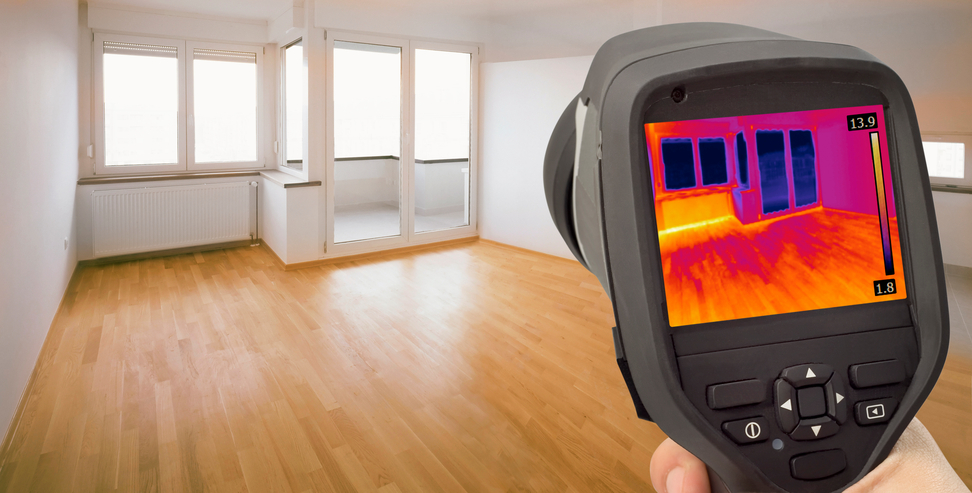Quebec Material 15 PDH Discount Package 1
A Guide to Industrial Coatings and Metal Finishes (T03-007)
Thermal Stress and Brittle Fracture of Material (T02-001)
Material Properties and Corrosion (T06-001)

This online engineering PDH course provides prescriptive requirements for the use of structural insulated panels (SIPs) in wall systems in the construction of residential structures. These provisions include definitions, span tables, material requirements, and other related information appropriate for use by engineers, home builders, design professionals, and building code officials.
The Prescriptive Method for Structural Insulated Panels (SIPs) Used in Wall Systems in Residential Construction (Prescriptive Method) provides prescriptive requirements to facilitate the use of SIPs in wall systems for the construction of one- and two-family dwellings. By providing prescriptive provisions for the construction of typical homes with SIP systems, the need for engineering can be eliminated or reduced for most applications.
This 4 PDH online course is applicable to engineers, design professionals and construction personnel who are interested in gaining a better understanding of the design and installation considerations of structural insulated panels.
This P.Eng. continuing education course is intended to provide you with the following specific knowledge and skills:
- Familiarizing with the SIP materials, sizes and shapes
- Understanding the SIP foundation, wall and header requirements
- Understanding SIP connection details
- Understanding the utility requirements associated with SIP wall systems
- Understanding the thermal guidelines associated with SIP wall systems
Upon successful completion of the quiz, print your Certificate of Completion instantly. (Note: if you are paying by check or money order, you will be able to print it after we receive your payment.) For your convenience, we will also email it to you. Please note that you can log in to your account at any time to access and print your Certificate of Completion.

This online engineering PDH course presents the basics of industrial coatings and metal finishes. It discusses common types of industrial coatings systems, basic principles in corrosion, substrate preparation, cleaning procedures and more.
The term “paint” which is used to describe a liquid or paste typically applied to a surface through a variety of application methods; provides a protective coating against corrosion, weathering, and other forms of surficial decay.
This 3 PDH online course is intended for material, industrial, manufacturing, facilities, civil, electrical, mechanical and structural engineers, as well as other technical professionals who are interested in learning more about industrial coatings and metal finishes.
This P.Eng. continuing education course is intended to provide you with the following specific knowledge and skills:
- Familiarizing with paint characteristics (wet/dry)
- Familiarizing with paint layers (primers, intermediates, finishing, clearcoats)
- Learning about industrial protective coating standards
- Understanding the process of corrosion and corrosion cells
- Familiarizing with substrate surface preparation and cleaning procedures
- Learning about paint preparation and application methods
- Understanding steel, concrete, hi-temp, powder coating systems
- Learning about the types of metal finishes
- Understanding how to paint with zinc-rich primers
- Familiarizing with the types of painting defects
Upon successful completion of the quiz, print your Certificate of Completion instantly. (Note: if you are paying by check or money order, you will be able to print it after we receive your payment.) For your convenience, we will also email it to you. Please note that you can log in to your account at any time to access and print your Certificate of Completion.

This online engineering PDH course addresses the effects of thermal stress and thermal shock on a system. It explains how thermal stress and shock combined with pressure can cause major damage to components. This course also addresses ductile and brittle fracture. It describes how ductile and brittle fractures are affected by the minimum pressurization and temperature curves. It also explains the reason why heatup and cooldown rate limits are used when heating up or cooling down a system.
This 2 PDH online course is applicable to structural and mechanical engineers, construction and personnel, technical staff and facility operators who are interested in gaining a better understanding of thermal stress and brittle fracture of materials.
This P.Eng. continuing education course is intended to provide you with the following specific knowledge and skills:
- Thermal stress
- Pressurized thermal shock
- Brittle fracture mechanism
- Minimum pressurization-temperature curves
- Heatup and cooldown rate limits
In this professional engineering CEU course, you need to review Modules 3 and 4, "Thermal Stress and Brittle Fracture" of the Department of Energy Publication DOE-HDBK-1017/1-93, "Material Science".
Upon successful completion of the quiz, print your Certificate of Completion instantly. (Note: if you are paying by check or money order, you will be able to print it after we receive your payment.) For your convenience, we will also email it to you. Please note that you can log in to your account at any time to access and print your Certificate of Completion.

This online engineering PDH course discusses the properties and behavior of materials, including stress and strain, thermal expansion, ductility, brittleness, creep, fatigue failure and more.
The purpose of this course is to briefly introduce several material properties and failure modes. A better understanding of these failure mechanisms will enable more appropriate decisions when selecting materials for a particular application. Even a basic knowledge and awareness can help design engineers to be better equipped in delaying or preventing the failure of a material or component.
Some general causes for failure are structural loading, wear, corrosion, and latent defects. Because most engineering materials contain discontinuities most metal fatigue cracks initiate from discontinuities in highly stressed regions of the component. Failure can occur in systems with moving or non-moving parts. In systems with moving parts, friction often leads to material degradation such as wear, and collisions between two components can result in surface or more extensive material damage. Systems with non-moving parts are also prone to material failure, especially when certain types of materials operate over a broad range of pressures and are subjected to extreme temperature changes or to high energy radiation environments.
This 6 PDH online course is applicable to mechanical, nuclear and industrial engineers, design professionals, facility managers and operators who are interested in gaining a better understanding of the properties and corrosion of material.
This P.Eng. continuing education course is intended to provide you with the following specific knowledge and skills:
- Understanding the terms as they relate to materials: mechanical stress and strain, hoop stress, thermal expansion, differential thermal expansion, thermal shock & residual stress
- Understanding factors which cause mechanical and thermal stress in a component and the consequences of exceeding stress limits in materials
- Understanding why heating and cool down rates are limited
- Defining the following properties of materials: ductility, brittleness & nil-ductility transition
- Learning the differences between ductile and brittle fracture
- Understanding why a material exhibiting a ductile/brittle transition temperature has operating limitations with respect to temperature
- Learning about creep as it relates to materials
- Understanding why a large shaft becomes deformed when at rest and why rolling a large shaft prior to operation reduces the deformation
- Understanding fatigue failure and work hardening
- Learning about the chemically induced damage to a material subjected to corrosive environment
- Understanding the effects of radiation on common materials such as metals, plastics and alloys
In this professional engineering CEU course, you need to review the technical document tilted, "Materials" (Volume 1) of the CNSC Training Course "Science & Reactor Fundamentals" which was extracted from Canteach knowledge repository (Doc# 20030301).
Upon successful completion of the quiz, print your Certificate of Completion instantly. (Note: if you are paying by check or money order, you will be able to print it after we receive your payment.) For your convenience, we will also email it to you. Please note that you can log in to your account at any time to access and print your Certificate of Completion.